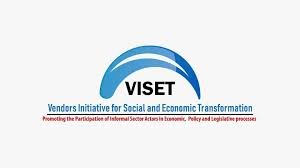TellZim Reporter
The Vendors Initiative for Social
and Economic Transformation (VISET) last week joined the rest of the world in
celebrating International Vendors Day, with focus on finding ways to extend
social security for people working in the informal economy.
The Viset commemorations were held
under the theme, ‘Social Security and the
future of the Informal Economy Work’.
This year’s commemorations are
being held when the world is struggling to cope with ravaging and desolating effects
of Covid-19 pandemic.
In a statement, Viset said greater
recognition and assistance should be given to the informal sector in light of
the vast contributions that it makes to economies.
“The day calls for recognition of
the contribution street vendors make to national development and to raise
awareness on the significant challenges street vendors face. Street vendors
still face considerable challenges in going about trying to earn a decent living.
“Whilst there are some peculiar challenges to the trade, on the whole street vendors
face similar challenges in plying their trade on the African continent and
globally,” the statement reads.
The vendors’ organization also
states that many socio-political and economic factors have led to the increase
of people working in the informal sector of economies.
“At present, it is estimated that
across the continent, the informal sector accounts for over 65 percent of
employment, with street vending providing much of that number.
It is thus imperative for national and local governments to begin to respect
and respond to the needs of the informal sector,” the statement reads.
Viset also called for social
protection for people working in the informal sector, saying lockdowns in many
countries had left street vendors economically vulnerable.
“Most interventions that were said
to cushion people during the lockdowns were poorly thought out and their
implementation woefully inadequate characterised by allegations of corruption.
“Part of this maybe ascribed to the
fact that there are no proper policies guiding the provision of social safety
nets for the informal economy in instances where people are unable to engage in
their trade. Most social security bodies are designed for the formal sector,
yet evidence at hand shows that more employment is now being found in the
informal,” the statement further reads.

